
17 Courses
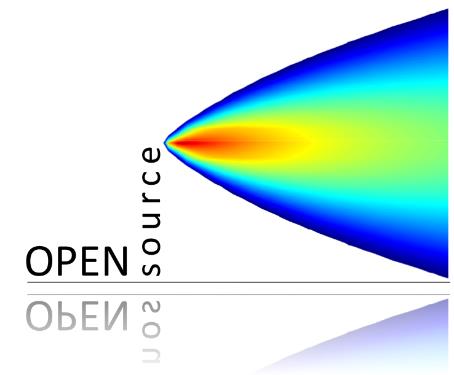
Openair
R is a freely available programming language, designed from the ground-up to make working with data easier and more reproducible. The language is widely used in the public and private sectors, in industries as wide ranging as financial services, healthcare, research, consultancy, journalism, and more. Data analysts and scientists in major companies like Google, Airbnb and Meta all use R to help gain extra insight from their data.
"openair" is a package written in R, designed specifically for the analysis of air quality data. It is used worldwide by air quality practitioners in academia, government and industry to learn more about their long-term measurement data. Functionality includes the ability to examine and visualise air quality time series and trends, as well as perform "directional analysis" to understand potential pollution sources. openair also provides easy access to air quality data in the UK from nationally and locally managed air quality networks.

Air Quality - Quick Start Guides (QSG)
We are introducing new Air Quality Quick Start Guides (QSG) covering topics relevant to local authority officers in an easy to digest format. These QSGs are ideal for those who are new to Local Air Quality Management or want to get up to speed with the latest regulations and information relating to air quality. Topics to be covered include Air Quality Standards and Objectives, air pollutants of particular concern, introduction to the Local Air Quality Management Framework including Monitoring and Assessment, Annual Status Reports, Air Quality Management Areas, Air Quality Action Plans and Air Quality Strategies.
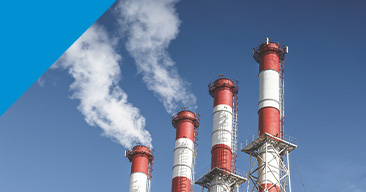
Air Quality
Welcome to Essentials of LAQM 1 - Introduction to LAQM - 7 April 2025 to 31 March 2026
This is a pre-recorded webinar. Estimated time to view webinar is 5 hrs. It is available from 7 April 2025 to 31 March 2026.
Fee = £295.00 plus VAT or 3 credits
Trainer = Patrick Harland
The aim of this course is to put local air quality management (LAQM) activities into a scientific, technical and legal context. It explains where LAQM fits into the various schemes for environmental protection and, in particular how it interfaces with health, climate change, development control, and traffic management policy.
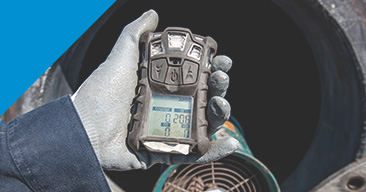
Air Quality
Welcome to Essentials of LAQM 2 - Monitoring and Compliance - 7 April 2025 to 31 March 2026
This is a pre-recorded webinar. Estimated time to view webinar is 5 hrs. It is available from 20 January to 31 March 2025.
Fee = £295.00 plus VAT or 3 credits
Trainer = Patrick Harland
This course addresses fundamental issues associated with the practicalities of assessing air quality via measurement. The trainer will facilitate a sharing of knowledge and experience of using passive diffusion tubes to monitor concentrations of ambient nitrogen dioxide.
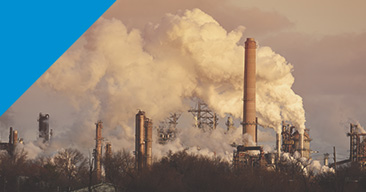
Air Quality
Welcome to Essentials of LAQM 3 - Review and Assessment - 7 April 2025 to 31 March 2026.
This is a pre-recorded webinar. Estimated time to view webinar is 3 hrs. It is available from 7 April 2025 to 31 March 2026.
Fee = £295.00 plus VAT or 3 credits
Trainer = Patrick Harland
The purpose of this course is to ensure that delegates have the knowledge to carry out a review and assessment of air quality at an appropriate level and to the timescales required. It will introduce attendees to the information, tools, and practice needed.

Air Quality
Welcome to Essentials of LAQM 4 - Action Planning - 7 April 2025 to 31 March 2026
This is a pre-recorded webinar. Estimated time to view webinar is 5 hrs. It is available from 7 April to 31 March 2026.
Fee = £295.00 plus VAT or 3 credits
Trainer = Patrick Harland
This course will examine, in detail, what LAs must do when an AQMA has been declared and improvement action is necessary; it re‑introduces the requirements to be met and the guidance to be followed.

Air Quality
Welcome to Essentials of LAQM 5 - Management - 7 April 2025 to 31 March 2026
This is a pre-recorded webinar. Estimated time to view webinar is 5 hrs. It is available from 7 April 2025 to 31 March 2026.
Fee = £295.00 plus VAT or 3 credits
Trainer = Patrick Harland
The purpose of this course is to point attendees to the knowledge required to manage the LAQM duties required of a local authority – consequently it will focus on the management rather than technical issues of fulfilling legal requirements, establishing the resource base to comply with those requirements, responsibly assessing the need for action, liaising with stakeholders, ensuring that any action taken is cost effective, and that air quality information is communicated to Defra or the Devolved Administration, and the public in an appropriate manner.

Air Quality
Essentials of LAQM Proficiency Test
Fee = £175.00 plus VAT or 3 credits
An EMAQ+
delegate who has attended all 5 EMAQ+ Essentials of LAQM modules and taken and successfully
passed the associated Online Knowledge checks, gaining all 5 credits, is
eligible to sit a final 'Proficiency Test'.
The test is designed to test their co-ordinated knowledge of all the
aspects of LAQM covered by the whole programme.
You cannot self enrol yourself for this test. You will be invited by the EMAQ+ Team to take this test when you are eligible.
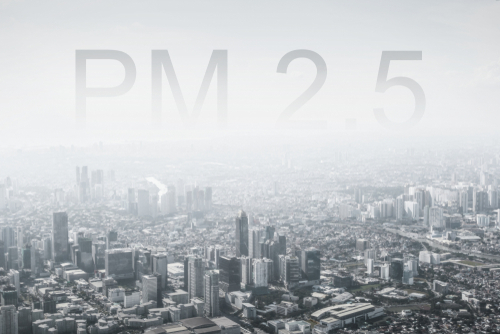
Air Quality
Managing PM2.5 and Smoke Control Areas (SCAs)
This is a live webinar on Thursday 6 November 2025 - 10.00 am to 1.00 pm
Fee = £125.00 plus VAT or 1 credit
Trainers = Guy Hitchcock and Charlotte Day
This webinar will look at the sources and health impacts of PM2.5, along with the current policy and regulatory context around managing these emissions. It will then focus in on smoke control areas and domestic burning, exploring how you can create, vary and enforce SCAs, and look at measures to encourage complaince and reduce domestic burning emissions. Finally it will look at managing others sources of PM2.5 such as transport, industry and construction and indoor PM2.5.

Air Quality
EMAQ+ LIVE
This is a live event on Tuesday 9th September 2025, 09:30-16:00 at Attenborough
Hall, Leicester City Hall.
Fee = FREE to EMAQ+ Members (Subscribers) or £95 + VAT to Non-Members by credit card or purchase order payment. Lunch and refreshments will be provided.
If you would like to register a place, please email the EMAQ+ Team at emaq@ricardo.com confirming the names of the individuals you would like to attend (limited to 3 per Local Authority) to make your booking.
Trainers = Tom Buckland, Tom Adams, Guy Hitchcock, Mark Broomfield.
The event will bring together local authority staff involved in improving air quality, including representatives from environmental health, planning, transport, public health and climate teams. During the event, we will discuss the challenges and opportunities for improving air quality in the UK, provide an update on the latest developments in Local Air Quality Management, hear examples of effective action to improve air quality from around the country, and create a Community of Practice between EMAQ members involved in tackling this critical environmental challenge.
The event is solely for local authority staff, will be delivered in-person, and is free for all EMAQ+ subscribers, although places are limited, so don’t forget to register!
NOTE: If you are new to EMAQ+, we will need to create an EMAQ+ account for you, where you will receive further information about this live event closer to the time, plus information about other EMAQ+ products via weekly mailouts. If after the event you do not wish to continue to receive EMAQ+ information, please let us know and we can deactivate your account.

Air Quality
IAQM Guidance Updates Relevant To Local Authorities
This is a pre-recorded AI presented webinar, approx. 20 minutes.
Fee = FREE to EMAQ+ Subscription Members
Please email the EMAQ+ Team at emaq@ricardo.com to make your booking.
Trainer = Oliver Marshall and Alex the AI presenter
This free AI webinar introduces the Institute of Air Quality Management (IAQM) which plays a crucial role in setting standards and supporting professionals in the air quality sector. Furthermore, recent updates to IAQM guidance updates are discussed that are relevant to Local Authorities. Guidance updates include:
– Integrating Action on Air Quality & Climate Change: A Guide for Local Authorities.
– Air Quality Neutral Guidance.
As well as briefly touching on upcoming updates:
– Odour Guidance Update.– Minerals Planning Guidance Update.
– Land-Use Planning & Development Control

Air Quality
New LAQM Guidance: Determining the impact of air quality improvement measures - available from 17 March 2025
This is a pre-recorded AI presented webinar, approx. 20 minutes. Available from 17 March 2025.
Fee = FREE to EMAQ+ Subscription Members
Please email the EMAQ+ Team at emaq@ricardo.com to make your booking.
Trainer = Oliver Marshall and Alex the AI presenter
This webinar will help Local Authority Officers digest the new LAQM.TG(22) Air Quality Action Plan Guidance. We will cover the main sections of the document, with each topic illustrated by several case studies to demonstrate practical applications:
– Categorising air quality measures into hard and soft measures.
– Different methods for assessing and quantifying AQAP measures.
– Conducting a cost-benefit analysis.

Air Quality
Air Quality Strategies: What are they, who will need one and how do they differ from AQAPs? (Intermediate) - 17 January 2024 to 31 March 2026
This is a pre-recorded webinar. Estimated time to view this webinar is 1 hr. It is available from 17 January 2024 to 31 March 2026.
Fee = £85.00 plus VAT or 1 credit
Trainer = Ella Wingard and Charlotte Day
From 2023, local authorities without AQMAs (Air Quality Management Areas), including those in the process of revoking their AQMA(s), are required to produce a local Air Quality Strategy. The requirement relates to local authorities in England and was included in the recently updated local air quality management (LAQM) Policy (PG22) and Technical Guidance (TG22). It reads as follows: “Those authorities who have not had to designate AQMAs and produce AQAPs will from 2023 be required to draw up a local Air Quality Strategy. These strategies will not have a set format and authorities will be able to draw on content within their ASRs and local transport plans to produce them.” Where local authorities revoke AQMAs (and no longer have any in place), they will be required to produce an Air Quality Strategy “to ensure air quality remains a high-profile issue and to ensure it is able to respond quickly should there be any deterioration in condition”.

Air Quality
Scenario Modelling for Setting Targets and Developing Pathways to Achieve Them - from 24 July 2023 to 31 March 2026
This is a FREE pre-recorded webinar, available until 31 March 2026. Estimated time to view
webinar is 30 minutes.
This webinar will introduce Defra’s air quality emissions scenario modelling tool, which can be used to develop cost effective measures for reducing emissions of air quality pollutants and greenhouse gases in a range of sectors. The course will cover:
- The scope of the model and underlying data- Creating individual measures and building scenarios
- Data inputs
- Interactive functionality, data visualisations and downloadable datasets
- Statutory requirements for Local Authorities
- Case studies

Air Quality
Air Quality Screening Tools
This is a pre-recorded webinar available from 9 June 2025 until 31 March 2026.
Fee = £65.00 plus VAT or 1 credit
Trainer = Charlotte Day
This mini webinar will aid local authorities in selecting the most appropriate screening method to assess the impact of stack emissions on local air quality. We will briefly review the principles on which the tools are based, and discuss which tools are applicable for a range of emission scenarios.
We will describe how the tools are used, via worked examples. Advice will be provided on selection of inputs like stack height, stack diameter and, where appropriate, distance from receptor.
We will provide worked examples for commonly used tools, including:
-
Biomass screening tool
- Industrial emissions screening tool
Finally, we will discuss the next steps if the screening assessment indicates the impact is exceeding the threshold (i.e. consider proceeding to a more detailed modelling assessment).
Delegates who complete the training should then be able to run screening analysis for new industrial and biomass plant within their local authority areas.

Air Quality
Air Quality Advanced 1 - Low Cost Sensor and Monitoring - available until 31 March 2026
This is a pre-recorded webinar. Estimated time to view this webinar is 5 hrs. Avaialble until 31 March 2026.
Fee = £295.00 plus VAT or 3 credits
Trainer = Stephen Stratton
The purpose of this webinar is to provide an understanding of the use of low cost air quality sensor systems. The webinar will look at the following:
– What is a low(er) cost sensor?
– Legislation / standardisation
– Sensor deployment – how can they be used
– Sensor characterisation/calibration
– Data interpretation and processing
– Example dataset with practical exercise
The webinar will enhance your understanding of:
– The practical uses for low cost air quality sensor systems
– The limitations of air quality sensor systems
– Getting the best out of the data from air quality sensor systems

Air Quality
Indoor Air Quality - available until 31 March 2026
This is a pre-recorded intermediate level webinar available until 31 March 2026.
Fee = £65.00 plus VAT or 1 credit
Trainers = Patrick Harland and Jakebs Jursins
This webinar will cover a range of areas relating to indoor air pollution - an area of increasing concern for human health. The webinar will initially focus on types of indoor air pollution, potential sources and the impact that indoor air pollution can have on human health. The differences between outdoor and indoor air pollution will also be discussed, identifying any differences in approach or impact that are vital for the handling of indoor air pollution. The legislation regarding the air quality standards and regulations of indoor air quality and the roles of various regulatory bodies and the application of the legislation will be covered, including the role of building regulations in the matter of indoor air quality. Finally, the webinar explores available latest guidance for the assessment and management of indoor air quality. On completion of the webinar we expect delegates will have a better understanding of the sources and impact of indoor air pollution and to understand the relevant legislation for monitoring, regulation and assessment.

Air Quality
Delivering a Successful Action Plan - available until 31 March 2026
This is a pre-recorded intermediate level webinar. Duration of this webinar is approx. 1 hr. Available to 31 March 2026.
Fee = £85.00 plus VAT or 2 credits
Trainer = Jekabs Jursins
A successful action plan is not just a list of actions that will improve air quality, it needs to establish a framework of assessment, implementation and review for successful delivery. This course will examine existing guidance and best-practice for what make an effective Air Quality Action Plan, including how these plans can compliment existing policy plans relating to climate/net zero policy. The webinar will set then out Ricardo’s framework for a successful action plan, examining how to approach understanding air quality problems and setting improvement targets; the development, refinement and assessment of measures for the action plan; and how to continuously monitor, evaluate and report the action plan once implemented. The webinar also considers the challenges and co-benefits of an ambitious action plan, looking at issues such as governance, funding and ownership for delivery.

Air Quality
Air Quality Mitigation
This is a pre-recorded updated webinar. Estimated time to view webinar is 4 hrs. It is available from 17 November 2025 to 31 March 2026.
Fee = £295.00 plus VAT or 3 credits
Trainer = Jekabs Jursins and Abigail Pepler
This webinar is aimed at local authorities, air quality and planning professionals at operational level whose duties include planning and air quality management, following Defra LAQM requirements. Delegates should have a minimum knowledge of air quality management issues and an understanding of the planning application process. This training webinar will benefit those who deal with planning applications regarding air quality impact assessments, conditions for development sites and the mitigation actions required in order to meet planning requirements and permit conditions. This updated webinar includes an up-to-date landscape of air quality issues and mitigation options; latest best practice and guidance from non-statutory bodies and latest government policy requirements as of 2025.
